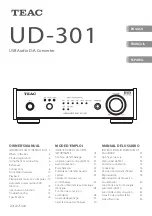
Self-Test Procedures
Self-Test Procedures
Power-On Self-Test
Each time the instrument is powered on, a subset of self-tests are performed. These tests check that the minimum set
of logic and subsystems are functioning properly.
Full Self-Test
Passing self-test provides a high degree of confidence that instrument is operating normally. Self-test procedure sys-
tematically exercises internal oscillator, digital infrastructure, waveform memory, and analog attenuator paths. It
attempts to isolate failures to a particular assembly to facilitate service. During the test, instrument main output(s) are
disconnected internally from the BNC connectors and are connected to the internal ADC, which checks for expected sig-
nal levels throughout the instrument.
A complete self-test (
) takes approximately 15 seconds. You may hear relays switching during the procedure.
When self-test completes, either "Self-test Passed" or "Self-test Failed" appears on front panel. Self-test error mes-
sages are described in detail below.
Execute self-test before any verifications or adjustments.
To Run Self-Test
Remove all input connections to instrument before self-test. Cycle power to run power-on self-test.
Remote I/O Execution
1. Connect to instrument using remote interface (
).
2. Send
and read the result: Pass (+0) or fail (+1). Use
to view errors.
Front Panel Execution
1. Press
System
and then press
Instr Setup
and
Self Test
.
2. A progress bar will appear as self-test executes. After completion, view any failures pressing and then pressing the
Help and View Errors softkeys.
Self-Test Error Numbers and Messages
A failure can generate multiple error messages; the first one should be considered the primary cause of failure. Some
error messages include a failing channel number (1 or 2), shown as n in the messages below.
Agilent 33500 Series Operating and Service Guide
415














































